Categories
Archives
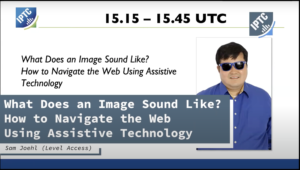
We are proud to announce that Camera Bits, Mobius Labs, Microsoft, Smithsonian, CBC and many others will be presenting at the IPTC Photo Metadata Conference next week, Thursday 10th November. With a theme of Photo Metadata in the Real World, the event is free for anyone to attend. Register here for the Zoom webinar to receive details before the event.
The event will run from 1500 UTC to 1800 UTC. The full agenda with timings is published on the event page.
We will start off with a short presentation on recent updates to the IPTC Photo Metadata Standard from David Riecks and Michael Steidl, co-leads of the IPTC Photo Metadata Working Group. This will include the new properties approved at the recent IPTC Autumn Meeting.
A session on Adoption of IPTC Accessibility properties will include speakers from Smithsonian, Camera Bits (makers of the photographers tool Photo Mechanic), Picvario presenting their progress implementing IPTC’s accessibility properties, announced at last year’s Photo Metadata Conference.
The next session will be Software Supporting the IPTC Photo Metadata Standard, where Michael Steidl and David Riecks, co-leads of the IPTC Photo Metadata Working Group, present their work on IPTC’s database of software supporting the Photo Metadata Standard, and the IPTC Interoperability tool, showing compatibility between tools for individual properties.
Use of C2PA in real-world workflows is the topic of the next session, demonstrating progress made in implementing C2PA technology to make images and video tamper-evident and to establish a provenance trail for creative works. Speakers include Nigel Earnshaw and Charlie Halford from the BBC, David Beaulieu and Jonathan Dupras from CBC/Radio Canada, Jay Li from Microsoft, and a speaker yet to be confirmed from the Content Authenticity Initiative.
The next session should be very exciting: Metadata for AI images will be the topic, featuring an introduction to synthetic media and “generative AI” images, including copyright and ownership issues behind the images used to train the machine learning models involved, from Brendan Quinn and Mark Milstein.
Then we have a panel session: How should IPTC support AI and generative models in the future? Questions to be covered include whether we should identify which tool, text prompt and/or model was used to create a generative image? Should we include a flag that indicates content was created using a “green”, copyright-cleared set of training images? And perhaps other questions too – please come along to ask your own questions! Speakers include Dmitry Shironosov, Everypixel / Dowel.ai / Synthetics.media, Martin Roberts from Mobius Labs and Sylvie Fodor from CEPIC. The session will be moderated by Mark Milstein from vAIsual.
Last year we had over 200 registrants and very lively discussions. We look forward to even more exciting presentations and discussions this time around! See you there. (Please don’t forget to register!)
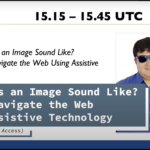
The IPTC Photo Metadata Working Group is proud to announce the IPTC Photo Metadata Conference 2022. The event will be held online on Thursday November 10th from 15.00 – 18.00 UTC.
This year the theme is Photo Metadata in the Real World. After introducing two new developments last year: the IPTC Accessibility properties and the C2PA specification for embedding provenance data in photo and video content – we re-visit both technologies to see how they are being adopted by software systems, publishers and broadcasters around the world.
The 3-hour meeting will host four sessions:
- Adoption of the IPTC Accessibility Properties – we hear from vendors and content creators on how they are progressing in implementing the new properties to support accessibility
- Software Supporting the IPTC Photo Metadata Standard – showcasing an update to IPTC’s directory of software supporting the IPTC Photo Metadata Standard, including field-by-field reference tables letting users compare software implementations
- Use of C2PA in real workflows – showcasing early work on implementing the C2PA specification in media organisations
- Artificial Intelligence and metadata – looking at the questions around copyright and synthetic media: for example, when generative AI uses thousands of potentially copyrighted images to train machine learning models, who owns the resulting images?
We look forward to welcoming all interested parties to the conference – no IPTC membership is needed to attend. The event will be held as a Zoom webinar.
Please see more information and the Zoom registration link on the event page.
See you there on the November 10th!
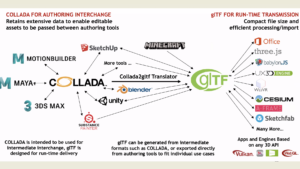
Last week the IPTC held its Autumn Meeting 2022, with over 70 attendees from over 20 countries attending the three-day online event.
Discussions were as wide-ranging as ever. Highlights were a guest presentation on how media organisations can prepare for the Metaverse from startup advisor and previous member of the Microsoft HoloLens team, Toby Allen; intense discussions from members about making our work in machine-readable rights and RightsML simpler and more accessible and to bridge the gap between our simple, lightweight JSON news standard ninjs and our richly structured full-featured XML-based standard NewsML-G2.
We also heard about many other topics:
- Meinolf Ellers at IPTC member dpa spoke about the DRIVE initiative, which follows on from the C-POP project that IPTC advised on in 2019 and 2020. DRIVE allows consortium members to share data about content usage to drive subscriptions and engagement, and to find under-represented areas in their news output to meet audience needs.
- We heard about representing social media content in NewsML-G2: Dave Compton of Refinitiv spoke about their work encoding content from Twitter and other social networks in NewsML-G2 format for re-use, enhancement and syndication.
- Will Kreth, previously CEO of EIDR, spoke about the HAND project which aims to create a unique identifier for media and sports talent
- Fredrik Lundberg from IPTC member iMatrics and guest presenter Jens Pehrson from GOTA Media spoke about a new tool they have developed that allows publishers to track the gender balance in their news content
- Johan Lindgren from IPTC member TT (the Swedish national news agency) spoke about their recent project to develop a classification and entity extraction engine for their news content, based on IPTC Media Topics taxonomy
- We heard from Audren Layeux of CARSA who spoke about the European Media Data Space project, an EU initiative
- Ben Colman, CEO of RealityDefender spoke (direct from TechCrunch Disrupt in San Francisco!) about their deepfake detection technology, used by social media networks, financial institutions and media organisations to detect manipulated images and videos.
- IPTC MD Brendan Quinn spoke about IPTC’s ongoing work with C2PA and Project Origin, including forthcoming additions to C2PA to include video metadata.
In addition, we heard updates from all IPTC Working Groups: Dave Compton introduced NewsML-G2 2.31; Paul Kelly spoke about some new developments in the RDF-based sports data model which will be announced soon; Pam Fisher described the work of the Video Metadata Working Group and the changes coming in Video Metadata Hub v1.4; David Riecks and Michael Steidl spoke about Photo Metadata Standard 2022.1 and the ongoing work of the Photo Metadata Working Group;
The Standards Committee voted in new standard versions: NewsML-G2 v2.31, Video Metadata Hub v1.4, and Photo Metadata Standard 2022.1. These will be released and publicised over the coming weeks.
The IPTC Annual General Meeting 2022 saw Johan Lindgren step down from the Board of Directors after 6 years of service. Thanks very much for all your help, Johan!
We are very happy to welcome a new Board member: Heather Edwards of Associated Press.
Thanks very much to everyone who attended and spoke. You contributed to making it a great event for all!
As usual, full recordings of all sessions are available to IPTC members on the members-only event page.
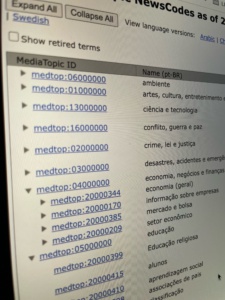
As is now traditional, the IPTC NewsCodes Working Group has released our regular update at the end of the calendar quarter.
This release includes updates to the Media Topic and Item Relation CVs.
Changes to the Media Topic vocabulary
Label and/or definition changes:
- medtop:20001304 sports award -> sports honour (definition also changed)
- medtop:20001303 sports medal -> sports medal and trophy (definition also changed)
- medtop:20001302 sports record (definition changed)
- medtop:20001104 drug use in sport (definition changed)
Retired terms:
- medtop:20001105 drug abuse in sport: RETIRED
- medtop:20001106 drug testing in sport: RETIRED
- medtop:20001107 medical drug use in sport: RETIRED
Hierarchy moves:
- medtop:20001338 education policy: moved from medtop:05000000 education to medtop:20000621 government policy. This change was suggested by ABC Australia – thanks very much!
New terms:
- medtop:20001360 fraternal and community group (child of medtop:20000768 communities)
- medtop:20001361 cyber warfare (child of medtop:16000000 conflict, war and peace)
- medtop:20001362 public transport (child of medtop:20000337 transport) – suggested by NTB Norway
- medtop:20001363 taxi and ride-hailing (child of medtop:20000337 transport)
- medtop:20001364 shared transport (child of medtop:20000337 transport)
The release also includes no-NN (New Norwegian) translations for the updates released in Q2 2022. Other languages were already updated over previous months.
Changes to other Controlled Vocabularies
The itemrelation CV is used in NewsML-G2 to show types of links between news items. The vocabulary now has two new terms:
- irel:translatedFromRoot: “The related resource contains the content from which this item was translated, either directly or indirectly via one or more other translations”
- irel:wasPackagedIn: “Indicates that this Item was included in the target package”
Thanks to everyone from IPTC members and users of the NewsCodes CV for suggesting terms, and to the NewsCodes and Sports Content Working Groups who helped to put this release together.
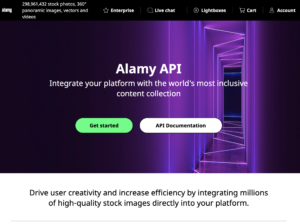 Alamy, a stock photo agency offering a collection of over 300 million images along with millions of videos, has recently launched a new Partnerships API, and has chosen IPTC’s ninjs 2.0 standard as the main format behind the API.
Alamy, a stock photo agency offering a collection of over 300 million images along with millions of videos, has recently launched a new Partnerships API, and has chosen IPTC’s ninjs 2.0 standard as the main format behind the API.
Alamy is an IPTC member via its parent company PA Media, and Alamy staff have contributed to the development of ninjs in recent years, leading to the introduction of ninjs 2.0 in 2021.
“When looking at a response format, we sought to adopt an industry standard which would aid in the communication of the structure of the responses but also ease integration with partners who may already be familiar with the standard,” said Ian Young, Solutions Architect at Alamy.
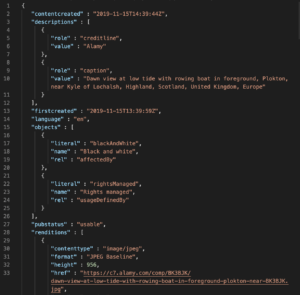
“With this in mind, we chose IPTCs news in JSON format, ninjs,” he said. “We selected version 2 specifically due to its structural improvements over version 1 as well as its support for rights expressions.”
Young continued: “ninjs allows us to convey the metadata for our content, links to the media itself and the various supporting renditions as well as conveying machine readable rights in a concise payload.”
“We’ve integrated with customers who are both familiar with IPTC standards and those who are not, and each have found the API equally easy to work with.”
Learn more about ninjs via IPTC’s ninjs overview pages, consult the ninjs User Guide, or try it out yourself using the ninjs generator tool.
Family Tree magazine has published a guide on using embedded metadata for photographs in genealogy – the study of family history.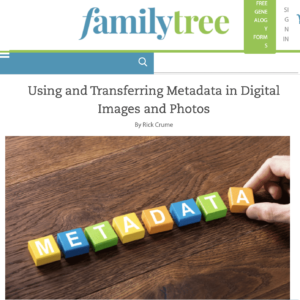
Rick Crume, a genealogy consultant and the article’s author, says IPTC metadata “can be extremely useful for savvy archivists […] IPTC standards can help future-proof your metadata. That data becomes part of the digital photo, contained inside the file and preserved for future software programs.”
Crume quotes Ken Watson from All About Digital Photos saying “[IPTC] is an internationally recognized standard, so your IPTC/XMP data will be viewable by someone 50 or 100 years from now. The same cannot be said for programs that use some proprietary labelling schemes.”
Crume then adds: “To put it another way: If you use photo software that abides by the IPTC/XMP standard, your labels and descriptive tags (keywords) should be readable by other programs that also follow the standard. For a list of photo software that supports IPTC Photo Metadata, visit the IPTC’s website.“
“[IPTC] is an internationally recognized standard, so your IPTC/XMP data will be viewable by someone 50 or 100 years from now”
The article goes on to recommend particular software choices based on IPTC’s list of photo software that supports IPTC Photo Metadata. In particular, Crume recommends that users don’t switch from Picasa to Google Photos, because Google Photos does not support IPTC Photo Metadata in the same way. Instead, he recommends that users stick with Picasa for as long as possible, and then choose another photo management tool from the supported software list.
Similarly, Crume recommends that users should not move from Windows Photo Gallery to the Windows 10 Photos app, because the Photos app does not support IPTC embedded metadata.
Crume then goes on to investigate popular genealogy sites to examine their support for embedded metadata, something that we do not cover in our photo metadata support surveys.
The full article can be found on FamilyTree.com.

Following on with our quarterly update cycle, the IPTC NewsCodes Working Group has released the Q2 2022 update of IPTC NewsCodes, including updates to the Media Topic, Subject Code, and Digital Source Type vocabularies.
Media Topic updates
- Translation changes:
- A new language translation for “New Norwegian” (Norwegian nynorsk, no-NN) has been added to all labels. The existing Norwegian labels previously tagged with “no” are now tagged as “no-NB” for Norwegian bokmål. Thanks very much to NTB for providing the update.
- Label and definition changes:
- medtop:20000446 diseases and conditions
- medtop:20001230 corporate social responsibility -> environmental, social and governance policy (ESG)
- medtop:20000449 epidemic -> epidemic and pandemic
- medtop:20000451 virus disease -> viral disease
- medtop:20000452 AIDS -> HIV and AIDS
- medtop:20000457 medical conditions -> medical condition
- medtop:20000458 mental health and disorder
- medtop:20000463 health organisation
- medtop:20000464 health treatment -> health treatment and procedure
- medtop:20000466 dietary supplement
- medtop:20000467 medical drugs -> non-prescription drug
- medtop:20000468 prescription drugs -> prescription drug
- medtop:20000469 medical procedure/test -> medical test
- medtop:20000470 medicine -> health care approach
- medtop:20000474 western medicine -> conventional medicine
- medtop:20000480 government health care
- medtop:20001225 ophthalmology -> eye care
- Definition changes:
- medtop:07000000 health
- medtop:20000784 family planning
- medtop:20000454 heart disease
- medtop:20000456 injury
- medtop:20000461 health facility
- medtop:20000465 diet
- medtop:20001219 drug rehabilitation
- medtop:20001221 emergency care
- medtop:20000471 herbal medicine
- medtop:20000472 holistic medicine
- medtop:20000473 traditional Chinese medicine
- medtop:20000479 healthcare policy
- medtop:20000483 health insurance
- medtop:20000484 private health care
- medtop:20000486 medical service
- medtop:20000490 paediatrics
- Hierarchy moves:
- medtop:20000500 animal moves to become a child of medtop:20000441 nature
- medtop:20000507 flowers and plants moves to become a child of medtop:20000441 nature
- medtop:20001318 pests moves to become a child of medtop:20000500 animal
- medtop:20000494 animal disease moves to become a child of medtop:20000500 animal
- medtop:20000495 plant disease moves to become a child of medtop:20000507 flowers and plants
- medtop:20000460 obesity becomes a child of medtop:20000457 medical condition
- medtop:20000477 vaccine becomes a child of medtop:20000464 health treatment and procedure
- New terms:
- medtop:20001355 developmental disorder
- medtop:20001356 depression
- medtop:20001357 anxiety and stress
- medtop:20001358 public health
- medtop:20001359 pregnancy and childbirth
- Retired terms:
- medtop:20001218 pandemic (use the new “epidemic and pandemic” term instead)
- medtop:20000450 plague (disease)
- medtop:20000453 retrovirus
- medtop:20000455 illness
- medtop:20000475 physical fitness
- medtop:20000476 preventative medicine
- medtop:20001220 general practice
- medtop:20000488 geriatric medicine
- medtop:20000489 obstetrics/gynaecology
- medtop:20001223 oncology
- medtop:20001222 orthopaedics
- medtop:20000713 pharmacology
- medtop:20001227 psychiatry
- medtop:20001224 radiology
- medtop:20000491 reproductive medicine
- medtop:20001226 surgical medicine
- medtop:20000493 non-human diseases
In a related tool update announcement, we have now added a handy “show retired terms” checkbox to the Media Topics interactive tree browser tool, and we default to only showing the active (non-retired) terms. The new option can be seen in the picture at the top of this article.
Digital Source Type vocabulary updates
After asking for feedback on a draft of the work a few months ago, we have updated the Digital Source Type vocabulary to support the emerging area of “Synthetic Media.”
The single term “softwareImage” has been retired, which means that while it is acceptable in legacy content, we no longer recommend its use. The term is now replaced with 9 new terms covering the spectrum from purely human creation through to purely machine image creation:
- Original media with minor human edits
- Composite of captured elements
- Algorithmically-enhanced media
- Data-driven media
- Digital art
- Virtual recording
- Composite including synthetic elements
- Trained algorithmic media
- Pure algorithmic media
- RETIRED: Created by software
To see more detail including the definition of each term, click the links above or view the entire IPTC Digital Source Type vocabulary.
Thanks to those both inside and outside of the IPTC community who gave feedback on our original proposal, your comments were very much appreciated.
Subject Code vocabulary updates – indicating its deprecated status
The IPTC Subject Code vocabulary was created over twenty years ago, in the year 2000. It was maintained through to 2010, but at that point the Media Topic vocabulary took over as IPTC’s preferred subject classification taxonomy. We will keep it on our vocabulary server, but we no longer recommend its use in projects due to some terms being out of date.
So we have put warnings on the pages of the Subject Code vocabulary that indicate its deprecated nature, and encourage users to look at Media Topic instead.
As always, the Media Topics vocabularies can be viewed in the following ways:
- In a collapsible tree view
- As a downloadable Excel spreadsheet
- On one page on the cv.iptc.org server
- In machine readable formats such as RDF/XML and Turtle using the SKOS vocabulary format: see the cv.iptc.org guidelines document for more detail.
For more information on IPTC NewsCodes in general, please see the IPTC NewsCodes Guidelines.
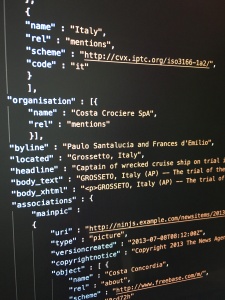 At the IPTC Spring Meeting in May 2022, IPTC’s Standards Committee voted to approve ninjs 1.4, the latest version in the 1.x track of IPTC’s standard for news content in the JSON format.
At the IPTC Spring Meeting in May 2022, IPTC’s Standards Committee voted to approve ninjs 1.4, the latest version in the 1.x track of IPTC’s standard for news content in the JSON format.
Johan Lindgren of TT Nyhetsbyrån, Lead of the IPTC News in JSON Working Group, said:
“After the launch of ninjs 2.0 in the autumn of 2021, we received requests to add some of the new 2.0 features to the first generation of ninjs, so that those who are using the 1.x branch of ninjs can use the new features without making breaking changes. So we are excited to publish version 1.4 of ninjs, where these features are included.”
Those changes include:
- New property contentcreated, denoting the date and time when the content of this ninjs object was originally created (as opposed to the date and time when the ninjs object itself was created). For example, an old photo that is now handled as a ninjs object may have a firstcreated and versioncreated of “2022-06-02T12:00:00+00:00”, but a contentcreated value of “1933-04-03T00:00:00+00:00”. The contents must be a valid JSON Schema date-time object.
- New property expires, showing “the date and time after which the Item is no longer considered editorially relevant by its provider.” Note that this is not the same as a rights-related expiration, it simply conveys the desire of the content creator to highlight the content until a certain time. A good example might be a football match preview, which would no longer be editorially relevant after the game commences. The contents must be a valid JSON Schema date-time object.
- New property rightsinfo, which holds an expression of rights to be applied to the content. It contains sub-properties langid (a URI which specifies the language used to specify rights such as RightsML or ODRL), and one of either linkedrights (containing a link to a remotely-hosted declaration of the rights associated with the content) or encodedrights (which includes an embedded encoding of the rights statements within the ninjs object).
Which version of ninjs should I choose for my project?
There might be some confusion since we have released ninjs 1.4 after the release of ninjs 2.0. Please note that this is simply an update to the 1.x branch of ninjs to make it easier for users who cannot upgrade to 2.x branch due to breaking changes.
If you are starting a new project that requires JSON-encoded news content, we recommend using ninjs 2.0. This version should be easiest for developers to work with.
If you are already using a 1.x version of ninjs, we recommend at least upgrading to version 1.4. This should be an easy change, because 1.4 is backwards-compatible with versions 1.0, 1.1, 1.2 and 1.3. We would also recommend upgrading to 2.0 if possible, but if not, 1.4 is the best version of the 1.x branch.
Supporting materials for ninjs 1.4 and ninjs 2.0 can be found at these locations:
- JSON Schema for ninjs 1.4: https://iptc.org/std/ninjs/ninjs-schema_1.4.json
- JSON Schema for ninjs 2.0: https://iptc.org/std/ninjs/ninjs-schema_2.0.json
- User Guide for ninjs (covering version 2.0 but mentioning 1.4): https://iptc.org/std/ninjs/userguide/
- The ninjs Generator has been updated to output 1.4-compatible JSON: https://www.iptc.org/std/ninjs/generator/
Thanks to Johan and the IPTC News in JSON Working Group for working on this release.
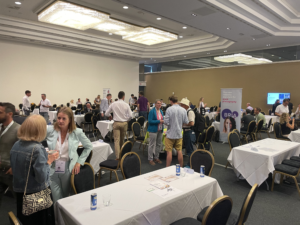
The IPTC took part in a panel on Diversity and Inclusion at the CEPIC Congress 2022, the picture industry’s annual get-together, held this year in Mallorca Spain.
Google’s Anna Dickson hosted the panel, which also included Debbie Grossman of Adobe Stock, Christina Vaughan of ImageSource and Cultura, and photographer Ayo Banton.
Unfortunately Abhi Chaudhuri of Google couldn’t attend due to Covid, but Anna presented his material on Google’s new work surfacing skin tone in Google image search results.
Brendan Quinn, IPTC Managing Director participated on behalf of the IPTC Photo Metadata Working Group, who put together the Photo Metadata Standard including the new properties covering accessibility for visually impaired people: Alt Text (Accessibility) and Extended Description (Accessibility).
Brendan also discussed IPTC’s other Photo Metadata properties concerning diversity, including the Additional Model Information which can include material on “ethnicity and other facets of the model(s) in a model-released image”, and the characteristics sub-property of the Person Shown in the Image with Details property which can be used to enter “a property or trait of the person by selecting a term from a Controlled Vocabulary.”
Some interesting conversations ensued around the difficulty of keeping diversity information up to date in an ever-changing world of diversity language, the pros and cons of using controlled vocabularies (pre-selected word lists) to cover diversity information, and the differences in covering identity and diversity information on a self-reported basis versus reporting by the photographer, photo agency or customer.
It’s a fascinating area and we hope to be able to support the photographic industry’s push forward with concrete work that can be implemented at all types of photographic organisations to make the benefits of photography accessible for as many people as possible, regardless of their cultural, racial, sexual or disability identity.
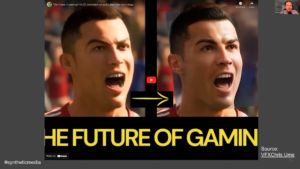
Where else can you hear about the difficulties of examining photo metadata in NFTs, see a lifelike image of a human being generated from pure data before your eyes, see how Wikidata can be used to take semantic fingerprints of news articles, and discover that an hour is nowhere near long enough to discuss simplifying machine-readable rights? Nowhere but the IPTC Meeting, of course! And this year’s Spring Meeting was the venue for all of this and much more.
We held the meeting virtually from Monday May 16 to Wednesday May 18th, and attending were over 70 people from at least 45 organisations across more than 20 countries.
Along with our usual Working Group updates and committee meetings, we invited speakers from several fascinating startups, services and projects at member companies. Here’s a quick summary of their sessions:
- We heard from Kairntech who are working on a classification system based on extracting entities from news stories and building a “semantic fingerprint” which can be used for cross-language classification, search and content enhancement
- The New York Times’ R&D Lab presented PaperTrail, a project to enhance the quality of the Times’ print archive through the use of machine learning to improve on basic OCR techniques (they’re looking for collaborators, more info coming soon!)
- Bria.ai showed us how an API can be used to enhance and create images and videos through the use of a custom GAN model trained in a “responsible AI” method
- Margaret Warren talked us through her efforts in creating and selling an NFT, looking at the process view the perspective of a photo metadata expert
- Consultant and author Henrik de Gyor talked us through the latest in synthetic media, which will be helpful in helping us to finalise our Digital Source Type vocabulary for synthetic media
- Laurent Le Meur from EDRLab presented his project’s recommendation on a Text and Data Mining Reservation Protocol, which can be used by publishers to restrict the rights of data miners in scraping any content for the purpose of analysis or building a model
- We heard from Dominic Young of Axate on his approach to offer pay-as-you-go payment options on paywalled news sites based on a simple pre-paid wallet mechanism.
We also had many announcements and discussions around IPTC standards, many of which we will be revealing in the coming months. One notable update is that the Standards Committee approved ninjs version 1.4 which we will release soon.
Thanks to all the IPTC members, Working Group leads, committee members and guests who made this member meeting one to remember.
Categories
Archives
- February 2026
- January 2026
- December 2025
- November 2025
- October 2025
- September 2025
- August 2025
- July 2025
- June 2025
- May 2025
- April 2025
- March 2025
- February 2025
- January 2025
- December 2024
- November 2024
- October 2024
- September 2024
- August 2024
- July 2024
- June 2024
- May 2024
- April 2024
- March 2024
- February 2024
- December 2023
- November 2023
- October 2023
- September 2023
- August 2023
- July 2023
- June 2023
- May 2023
- March 2023
- February 2023
- January 2023
- December 2022
- November 2022
- October 2022
- September 2022
- August 2022
- July 2022
- June 2022
- May 2022
- April 2022
- March 2022
- February 2022
- January 2022
- December 2021
- November 2021
- October 2021
- September 2021
- August 2021
- July 2021
- June 2021
- May 2021
- April 2021
- February 2021
- December 2020
- November 2020
- October 2020
- September 2020
- August 2020
- July 2020
- June 2020
- May 2020
- April 2020
- March 2020
- February 2020
- December 2019
- November 2019
- October 2019
- September 2019
- July 2019
- June 2019
- May 2019
- April 2019
- February 2019
- November 2018
- October 2018
- September 2018
- August 2018
- July 2018
- June 2018
- May 2018
- April 2018
- March 2018
- January 2018
- November 2017
- October 2017
- September 2017
- August 2017
- June 2017
- May 2017
- April 2017
- December 2016
- November 2016
- October 2016
- September 2016
- August 2016
- July 2016
- June 2016
- May 2016
- April 2016
- February 2016
- January 2016
- December 2015
- November 2015
- October 2015
- September 2015
- June 2015
- April 2015
- March 2015
- February 2015
- November 2014